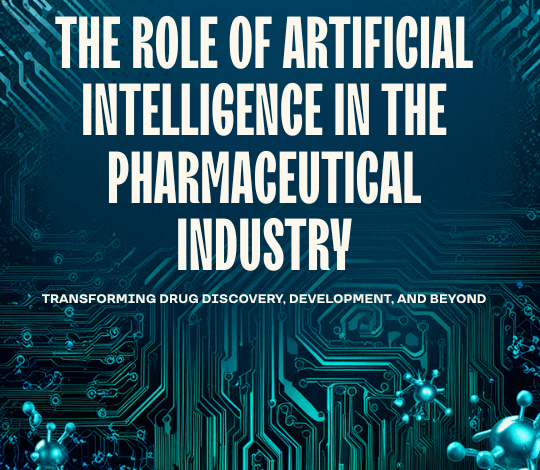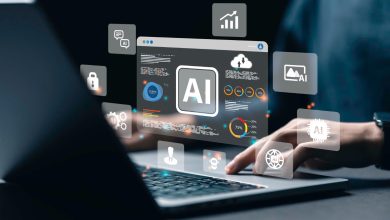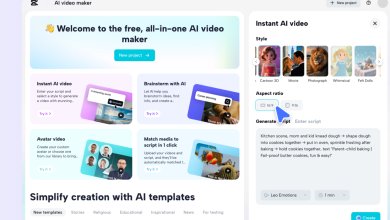
Introduction
Artificial Intelligence (AI) has rapidly shifted from being a buzzword to a transformative force in numerous industries. In the pharmaceutical sector, AI is redefining how drugs are discovered, developed, manufactured, and delivered to patients. By leveraging immense computational power, machine learning algorithms, and vast datasets, AI is addressing challenges such as the high costs, lengthy timelines, and high failure rates associated with traditional drug development methods.
AI in Drug Discovery
Drug discovery has traditionally been a time-intensive and costly endeavor, often taking over a decade and billions of dollars to bring a single drug to market. AI is revolutionizing this process by enabling better target identification, drug design, and preclinical testing.
Target Identification
AI algorithms analyze vast amounts of biological data to identify proteins, genes, or pathways that can be targeted for therapeutic purposes. By sifting through genomic, proteomic, and transcriptomic data, AI systems provide insights into disease mechanisms that were previously difficult to uncover, accelerating the early stages of drug discovery.
Drug Design and Optimization
AI is also being used to design new molecules with desired properties. Generative algorithms, like those based on deep learning, can create virtual compounds that are then screened for efficacy, safety, and bioavailability. This allows researchers to narrow down potential candidates more quickly and cost-effectively.
Predicting Drug Repurposing
One of AI’s notable contributions is in drug repurposing—identifying new therapeutic uses for existing drugs. By analyzing data from clinical trials, patient records, and scientific literature, AI models can predict which already-approved drugs might be effective for treating other conditions. This approach gained significant attention during the COVID-19 pandemic.
AI in Clinical Trials
Clinical trials are a critical phase in drug development, yet they are often plagued by inefficiencies and high costs. AI is addressing these challenges through smarter trial design, patient recruitment, and real-time monitoring.
Patient Recruitment
Finding the right participants for clinical trials is a significant hurdle. AI platforms analyze electronic health records (EHRs), genetic data, and social determinants of health to identify suitable candidates. By ensuring that participants meet precise eligibility criteria, AI reduces dropout rates and enhances the quality of trials.
Trial Design and Monitoring
AI offers predictive analytics to design trials that are more likely to succeed. Moreover, during the trial process, AI systems can monitor patient data in real time, identifying anomalies and ensuring protocol adherence. This enables adaptive trials, where parameters can be adjusted dynamically to improve outcomes.
AI in Manufacturing and Supply Chain
The pharmaceutical supply chain is another area where AI is making a significant impact. From optimizing production processes to ensuring the seamless delivery of medications, AI ensures efficiency and reliability.
Smart Manufacturing
AI-powered systems are transforming pharmaceutical manufacturing by predicting equipment maintenance needs, optimizing production schedules, and reducing waste. Machine learning algorithms analyze data from sensors and machinery to maintain production quality and minimize downtime.
Supply Chain Optimization
AI enhances supply chain logistics by predicting demand patterns, improving inventory management, and identifying disruptions in real time. This ensures that life-saving medications reach patients when and where they are needed.
Personalized Medicine and AI
Personalized medicine tailors treatments to individual patients based on their genetic makeup, lifestyle, and environmental factors. AI plays a crucial role in this shift from a one-size-fits-all approach to more precise and effective therapies.
Enhanced Diagnostics
AI algorithms analyze medical imaging, genetic data, and biomarkers to diagnose diseases with greater accuracy. For example, AI systems have shown promise in detecting cancers, neurological disorders, and rare diseases earlier than traditional methods.
Customized Treatment Plans
By integrating data from various sources, AI helps doctors design personalized treatment plans for patients. These plans consider factors such as drug efficacy, potential side effects, and patient preferences, improving overall treatment outcomes.
Ethical Considerations and Challenges
While AI offers immense promise, its integration into the pharmaceutical industry raises ethical and practical concerns.
Data Privacy
The use of sensitive patient data by AI systems necessitates robust measures to ensure privacy and security. Transparent data governance policies are essential to gain the trust of patients and stakeholders.
Bias and Fairness
AI algorithms can inadvertently perpetuate biases present in training data, leading to unequal treatment recommendations. Efforts must be made to ensure that AI systems are trained on diverse and representative datasets.
Regulatory Compliance
The rapid pace of AI innovation poses challenges for regulators who must ensure that AI-driven solutions are safe, effective, and ethical. Clear guidelines and frameworks are needed to govern the use of AI in pharmaceuticals.
Future Prospects
The future of AI in the pharmaceutical industry is bright, with ongoing advancements in machine learning, quantum computing, and big data analytics. Collaborative efforts between technology companies, pharmaceutical firms, and regulatory bodies will be critical in realizing AI’s full potential to improve patient outcomes and revolutionize healthcare.
Conclusion
Artificial Intelligence is driving a paradigm shift in the pharmaceutical industry, enabling breakthroughs that were once deemed impossible. From streamlining drug discovery to personalizing patient care, AI holds the promise of faster, cheaper, and more effective solutions to some of the most pressing healthcare challenges. While there are hurdles to overcome, the integration of AI into pharmaceuticals represents a new frontier in medicine, poised to benefit humanity in unprecedented ways.




